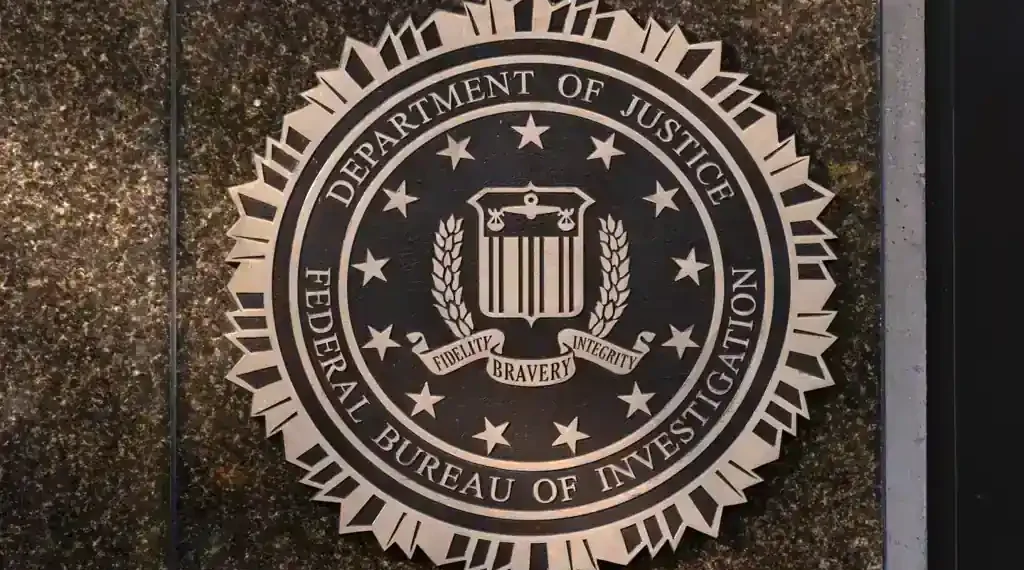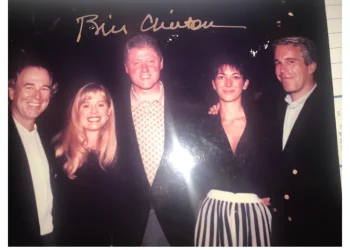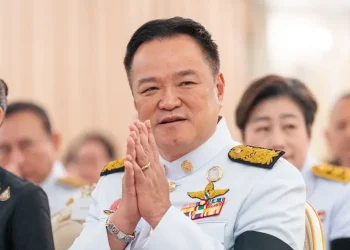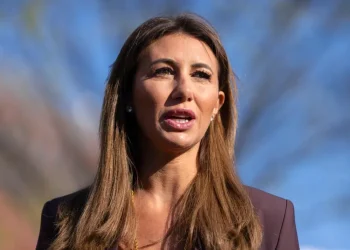Driscoll’s departure follows months of internal reshuffling under current FBI leadership, raising questions about political pressure and institutional independence.
Written: August 8, 2025 | 16:30 ET (U.S. Eastern Time)
A top FBI official who briefly served as acting director in early 2021 is leaving the bureau amid a wave of internal reassignments and retirements. His departure highlights growing concerns over political influence, especially regarding the handling of the Capitol riot investigation.
Brian Driscoll Departs FBI After Resisting Trump-Era Pressure
Brian Driscoll, a career FBI official who once oversaw the bureau’s elite tactical and crisis response units, is being forced out of his position, according to two sources familiar with the matter. Speaking on the condition of anonymity to The Associated Press, the individuals said Driscoll’s final day will be Friday. The reasons for his departure were not publicly detailed.
Driscoll’s exit marks another significant change in FBI leadership as the bureau undergoes a large-scale internal shake-up under current Director Kash Patel and Deputy Director Dan Bongino. Since their appointments, a number of senior personnel, including agents leading field operations in major cities, have been reassigned, demoted, or pressured to resign.
FBI spokespeople have declined to comment on Driscoll’s departure or the broader changes within the agency.
A Long-Standing FBI Career in Crisis Operations
Driscoll built his reputation through years of service in international counterterrorism and crisis response. He previously led the FBI’s Hostage Rescue Team and had most recently served as acting director of the bureau’s Critical Incident Response Group. This unit provides tactical support during emergencies and high-risk operations.
In January 2021, he briefly stepped in as acting FBI director after the departure of Christopher Wray, during a period when the nomination of Patel was still pending. Driscoll’s leadership coincided with intense scrutiny over the FBI’s handling of the Capitol riot on January 6, 2021, which involved a violent mob of then-President Donald Trump’s supporters attempting to disrupt the certification of the 2020 election.
Tensions Over Jan. 6 Investigation Requests
Driscoll’s role became particularly visible when he and then-Deputy Director Rob Kissane reportedly resisted efforts by Trump administration officials to obtain the names of FBI agents who were involved in investigating the January 6 attack.
According to internal communications, Emil Bove, a senior Justice Department official at the time, requested the personnel details of those agents. Bove, who was confirmed last week to a seat on the federal appeals court, later accused FBI leadership of “insubordination” in a memo criticizing their refusal to fully comply with the demand.
In response, the FBI eventually provided data on thousands of employees—but did so using anonymized employee identification numbers rather than releasing full names, in an apparent effort to protect agents’ privacy and safety.
A Broader Pattern of Internal Restructuring
Driscoll’s ouster appears to be part of a wider pattern of personnel changes under Director Patel’s leadership. Over the past several months, multiple senior officials have reportedly been subjected to polygraph exams, removed from their posts, or encouraged to retire or accept reassignments.
Notably, the FBI reassigned several agents earlier this year after they were photographed kneeling during a racial justice protest in Washington following the 2020 killing of George Floyd. The incident drew attention to internal debates within the bureau about political expression and public image.
Another agent, Michael Feinberg, publicly claimed he was pressured to resign or accept a demotion after leadership scrutinized his personal friendship with Peter Strzok. Strzok, a key figure in the FBI’s Trump-Russia investigation, was dismissed from the bureau in 2018 after it was revealed he had exchanged private text messages critical of Trump with then-FBI attorney Lisa Page.
No Official Comment, But Uncertainty Looms
As of Thursday, the FBI has not issued a public statement regarding Driscoll’s removal or the broader internal reshuffling. Sources say additional senior-level departures remain possible in the coming weeks.
While internal personnel moves are not uncommon in federal agencies, the volume and nature of the changes under Patel and Bongino have raised concerns among former officials and analysts about morale, political pressure, and the future direction of the FBI.
Analysis: Political Pressure and Institutional Independence
Driscoll’s departure, especially in light of his resistance to politically sensitive requests, underscores ongoing tensions between federal law enforcement agencies and shifting political landscapes. Though it is not uncommon for new leadership to restructure agency roles, critics argue that the scale and focus of the recent FBI shake-ups suggest a more aggressive effort to assert control and loyalty.
The decision to anonymize agent identities in the Jan. 6 probe was widely seen as an attempt to protect the integrity and safety of those involved. Supporters of that move maintain that law enforcement professionals should not face exposure or retaliation for performing their duties during politically charged investigations.
Conclusion
Brian Driscoll’s exit from the FBI is the latest in a string of high-level changes reshaping the bureau’s leadership. While official explanations remain limited, the pattern of reassignments, retirements, and internal pressures paints a picture of a federal agency at a crossroads—caught between law enforcement responsibilities and the political pressures of the post-Trump era.
The long-term implications for the FBI’s structure and independence remain to be seen, but questions about transparency, oversight, and personnel policy are likely to persist as the bureau continues to evolve under new leadership.
This article was rewritten by JournosNews.com based on verified reporting from trusted sources. The content has been independently reviewed, fact-checked, and edited for accuracy, neutrality, tone, and global readability in accordance with Google News and AdSense standards.
All opinions, quotes, or statements from contributors, experts, or sourced organizations do not necessarily reflect the views of JournosNews.com. JournosNews.com maintains full editorial independence from any external funders, sponsors, or organizations.
Stay informed with JournosNews.com — your trusted source for verified global reporting and in-depth analysis. Follow us on Google News, BlueSky, and X for real-time updates.














